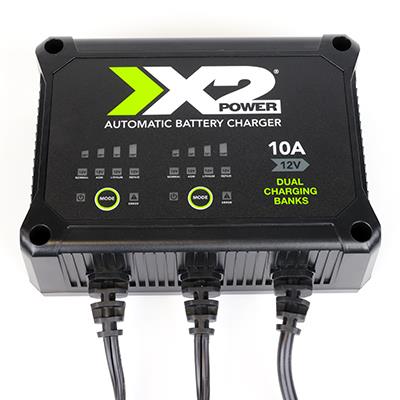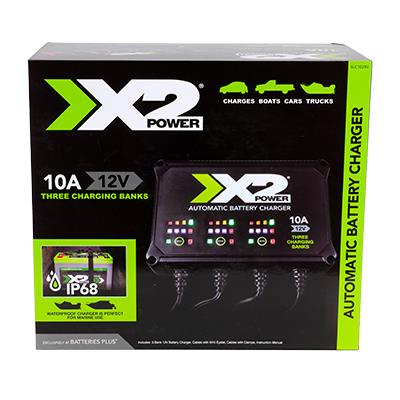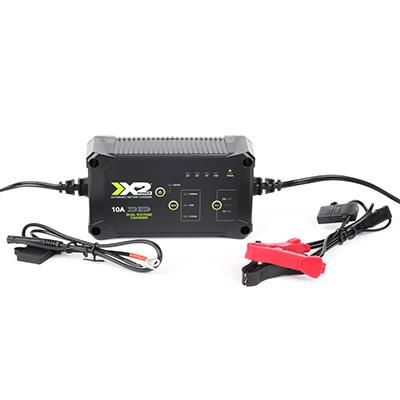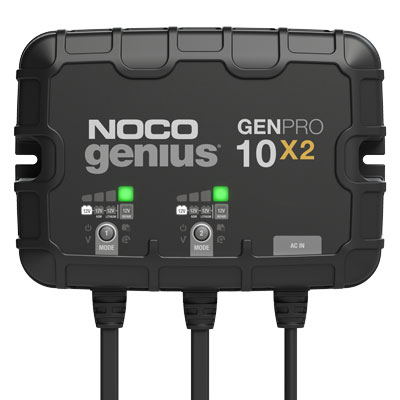Keep Your Boat Powered Up: A Guide to Choosing the Right Boat Battery Charger
- by Joe Weber - updated on 7/25/2025
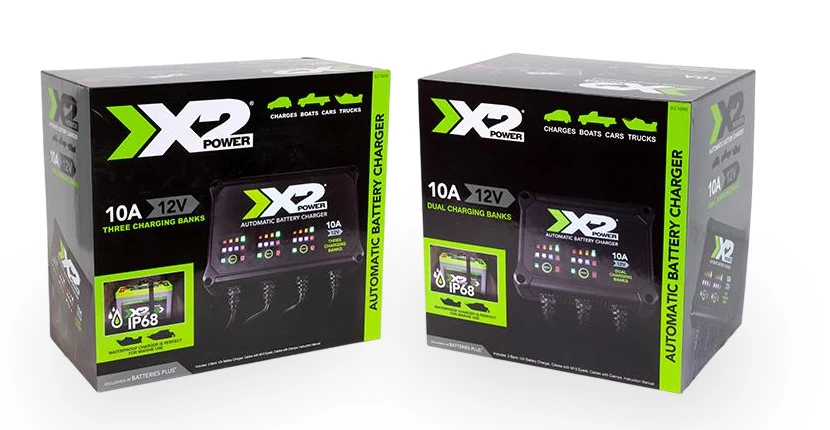
Owning a boat comes with its fair share of maintenance, and keeping your battery charged is one of the most important tasks on your list, but it doesn't have to be a headache. Whether you're powering a fishing boat, pontoon, or sailboat, the right boat battery charger helps extend your battery's life, saves you money, and ensures you're ready for your next adventure on the water.
Key Takeaways
- Using a marine battery charger protects your boat battery and extends its life.
- Choose a charger that matches your battery type and offers features like smart charging and durability.
- Decide between onboard, portable, or solar chargers based on your boating lifestyle.
- Batteries Plus offers free battery testing and expert advice to keep you powered up on the water.
Why You Need a Dedicated Marine Battery Charger
While you might think a regular car battery charger will do the trick, boat batteries face unique challenges that require unique solutions. Boat batteries often idle for long stretches, are exposed to moisture, and run multiple electronics at once. A charger designed for marine use helps prevent sulfation, undercharging, and premature battery failure.
What to Look for in a Boat Battery Charger
When shopping for a boat battery charger, pay attention to:
- Battery Type: Is your battery AGM, flooded lead acid, or lithium? Make sure your charger matches the chemistry of the battery.
- Amperage: More amps mean faster charging—just be sure it's compatible with your battery's size.
- Smart Technology: Automatic shutoff or trickle charge modes protect your battery from overcharging.
- Weatherproofing: Look for corrosion resistance and waterproof designs for the harsh marine environment.
- Multi-Bank Charging: If you have more than one battery, multi-bank chargers save time and hassle.
Popular Types of Boat Battery Chargers
- Onboard Chargers: Permanently mounted on your boat—plug in when docked for easy recharging.
- Portable Chargers: A flexible option that you can move between boats or use at home.
Pro Tip: Test and Maintain Your Battery
Avoid a dead battery when you're miles from shore. Test your boat battery regularly—Batteries Plus offers this service for free. Our experts can also recommend the best charger for your setup or help you find the best battery charger for your battery.
Recommended Marine Battery Chargers
Ready to upgrade? Here are some top-quality marine battery chargers available at Batteries Plus — rugged, smart, and trusted by countless boat owners.
X2Power Dual Bank 12V 10A Marine Battery Charger
- Charges two batteries at once — ideal for marine, RV, and specialty use
- Compatible with AGM, wet & LiFePO4 batteries
- Waterproof, dirtproof, with built-in safety features
- 3-year limited warranty
X2Power 3-Bank 12V 10A Marine Battery Charger
- Powers three batteries simultaneously
- Works with AGM, wet cell & LiFePO4
- Rugged, waterproof design for harsh conditions
- 3-year limited warranty
X2Power 10A 6V/12V Automatic Battery Charger
- Versatile for auto, marine, golf & heavy-duty batteries
- Compatible with AGM, wet & LiFePO4
- Smart charging with safety protections
- 3-year limited warranty
NOCO Genius 10x2 2-Bank 20A On-Board Charger
- 2-bank, 20A charger for 12V marine & auto batteries
- Supports AGM, flooded & lithium batteries
- Fully automatic, waterproof, built for tough marine use
- 3-year limited warranty
Trust Batteries Plus for Your Marine Power Needs
Don't risk your next outing on an old battery or the wrong charger. At Batteries Plus, our associates are your local marine battery experts — ready to help you find the right battery and charger to keep your boat powered up and ready to go. We carry top-quality boat batteries and durable marine chargers you can count on, plus free battery testing and trusted advice to keep you on the water longer.
Visit your nearest Batteries Plus store or shop online today for the best marine batteries, chargers, and local expertise you won't find anywhere else.
FAQs: Boat Battery Chargers
Q: Can You Use a Car Battery Charger on a Boat Battery?
A: It's not recommended. Car battery chargers aren't built for the deep cycle charging that marine batteries often need. Using the wrong charger can lead to undercharging, sulfation, or even battery damage over time. Always choose a charger specifically designed for marine batteries.
Q: What Size Boat Battery Charger Do You Need?
A: A good rule of thumb is to select a charger that provides 10–20% of your battery's total amp-hour (Ah) capacity. For example, if you have a 100Ah battery, a 10–20 amp charger is ideal. This helps recharge your battery efficiently without overloading it.
Q: Do I Need a Higher Amp Charger When Using a Multi-Bank Charger?
A: Not always, but you do need to make sure each bank provides enough amps for each battery. Multi-bank chargers, like the NOCO GENPRO 10X4, split their total output between multiple batteries. For example, the GENPRO 10X4 is a 40-amp, 4-bank charger, so each bank delivers 10 amps to its connected battery.
Let's say you have four 100Ah deep-cycle marine batteries. A good rule of thumb is to provide 10–20% of each battery's amp-hour rating, so 10 amps per bank is right on target. This setup lets you charge multiple batteries simultaneously and safely without overloading or undercharging any one battery.
Always check your batteries' specs and match your charger's banks accordingly for the best performance on the water.
Q: Should You Disconnect Your Battery Before Charging?
A: If you're using an onboard charger that's permanently installed, you typically don't need to disconnect anything. For portable chargers, check the manufacturer's instructions. Always ensure battery terminals are clean, dry, and securely connected for safe charging.
Q: Can You Overcharge a Marine Battery?
A: Yes — overcharging is one of the fastest ways to damage your marine battery. It can cause excessive heat buildup, water loss in flooded batteries, or even permanent capacity loss. That's why smart chargers with automatic shut-off or maintenance modes are worth the investment. They switch to float or trickle charging once your battery reaches full capacity.
Q: What Causes Battery Undercharging?
A: Undercharging happens when a battery isn't brought back to a full state of charge after use. This often occurs if you use an undersized charger, don't charge long enough, or use an automotive charger that doesn't match your battery's deep cycle profile. Repeated undercharging leads to sulfation — a build-up of lead sulfate crystals that can shorten battery life significantly.
Q: How Long Does It Take to Charge a Marine Battery?
A: The charging time depends on your battery's amp-hour rating and the charger's output. For example, using a 10 amp charger on a 100Ah battery would take roughly 10–12 hours to fully recharge if it's deeply discharged. Smart chargers may adjust the charge rate automatically, helping you get back on the water faster while protecting your battery.
